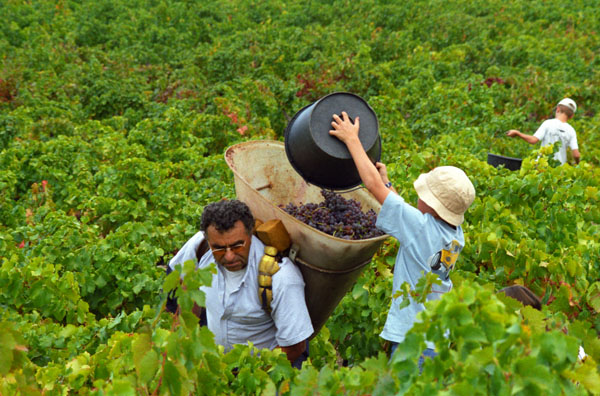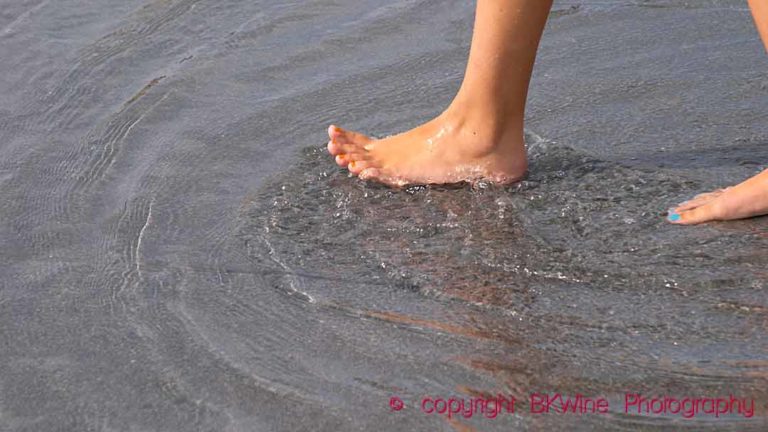Systembolaget, the Swedish monopoly, launched some years back a special project for “ethical” assessment of their products. It is a question that concerns many producers and buyers around the world. Systembolaget has also begun a sort of “ethical labelling” of the products. BKWine Magazine’s reporter Mikael Karlin met recently with Systembolaget’s staff responsible for the ethical project. Here is his report from the meeting.
Systembolaget has begun in 2016 to implement a sustainability program that was developed in 2015. The program comprises 829 articles from 22 so-called “risk countries” in the standard range of products, which is 21% of all countries and barely 5% of all articles in the full range, but a full 95% of the sales volume. (Editor’s note: In other words, some of these products are big volume sellers.)
Today there are 29 “ethical” products in the range, which does not mean that the other approximately 15,000 articles are unethical. (Ed’s note: Systembolaget has around 2000 products in its own standard range. The other products are in the “on order” range that is the responsibility of the independent wine importers and not at all managed by Systembolaget.)
In practical terms, this project means that this year they will make about 100 audits of suppliers compared to the previous 10-15 per year. The work is shared with the other Nordic monopolies ie Alko in Finland and Vinmonopolet in Norway, which also has their own sustainability programs. The audits will be carried out according to the Business Social Compliance Initiative’s (BSCI) regulations, which Systembolaget has adopted.

So what does this framework mean?
Freedom of association: Workers should not be prevented from or discriminated against for union membership.
Reasonable compensation: Workers shall receive reasonable compensation as well as the legally regulated social benefits. Minimum wages should at least be paid and BSCI has introduced a letter on living wages. Wages should be paid punctually and without deductions. Any overtime should be paid with a premium that exceeds the basic salary.
Labour security: Large area covering a variety of health and safety related issues, such as use of protective equipment. The code requires that risk assessment is carried out and that preventive measures be implemented so as not to endanger the safety of workers.
Protection for younger workers (under 18 years): Special consideration should be given to younger workers, for example they must not work nights or carry heavy tasks.
Forced labour: All forms of employment must be by free will, and the employee is free to leave the workplace, the ID documents of the employee may not be seized by the employer etc.
Business ethics: Clearer requirements on business ethics with zero tolerance for corruption and bribery.
Discrimination: No discrimination on the grounds of, for example, gender, age, religion, ethnicity, etc. may occur.
Reasonable working hours: Regular working hours shall not exceed 48 hours per week.
Child labour: No persons under the age of 15 are employed and a robust system is in place to verify the age.
Precarious contracts: Requirement for employment security (contract), that information is given to the employees about their rights and obligations and employment status.
Environment: In general, the code is weak on the issue of the environment, but at least it requires from the parties to measure their environmental impact and establish policies and procedures to reduce their environmental impact.

At this level of detail it is likely that the requirements are met in all the countries and does not look particularly difficult to fulfil. Everyone should easily sign up to these demands for the working conditions in 2016.
Why is it then that, for example, Italy, Spain and the United States are named as “risk countries”?
No clear answer was given. A daring guess may be that is has to do with the “reasonable compensation” or possibly “Business Ethics”, both of which can accommodate much more detailed requirements than the summary above shows. But that is no more than a guess, and when it comes to winemaking it is in part a question of seasonal workers with often itinerant labour. At wineries however it is a big advantage to have experienced manpower that there is hardly room for extensive temporary employment.
On the one hand, it is commendable and important that developed countries help to improve sustainability and working conditions in poorer countries. On the other hand, the balance between realistic and unrealistic demands for improvements is an issue that is best assessed based on each country’s situation. The first results of the audits will show how balanced and delicately Systembolaget handles the regulations.
As for the 29 products in the “ethical range” the balance easier to handle. They are invariably quite simple wines in the price range from 42 SEK (converted from bag-in-box price) to 91 SEK per bottle. Six of the wines are good value according to my tasting notes, 17 are reasonably prices and six are not up to par. Since not having an ethical label does not mean that a wine is “unethical”, I recommend making a grown-up choice and try any wine that looks interesting, regardless of ethical labelling or not.
The feel-good aspect that possibly arises from buying ethically labelled wine (considering unlabelled wines are not automatically unethical) shall reasonably be weighed against the extra cost of certification.
Mikael Karlin writes för BKWine Magazine on wine tastings and wine events in Sweden.








